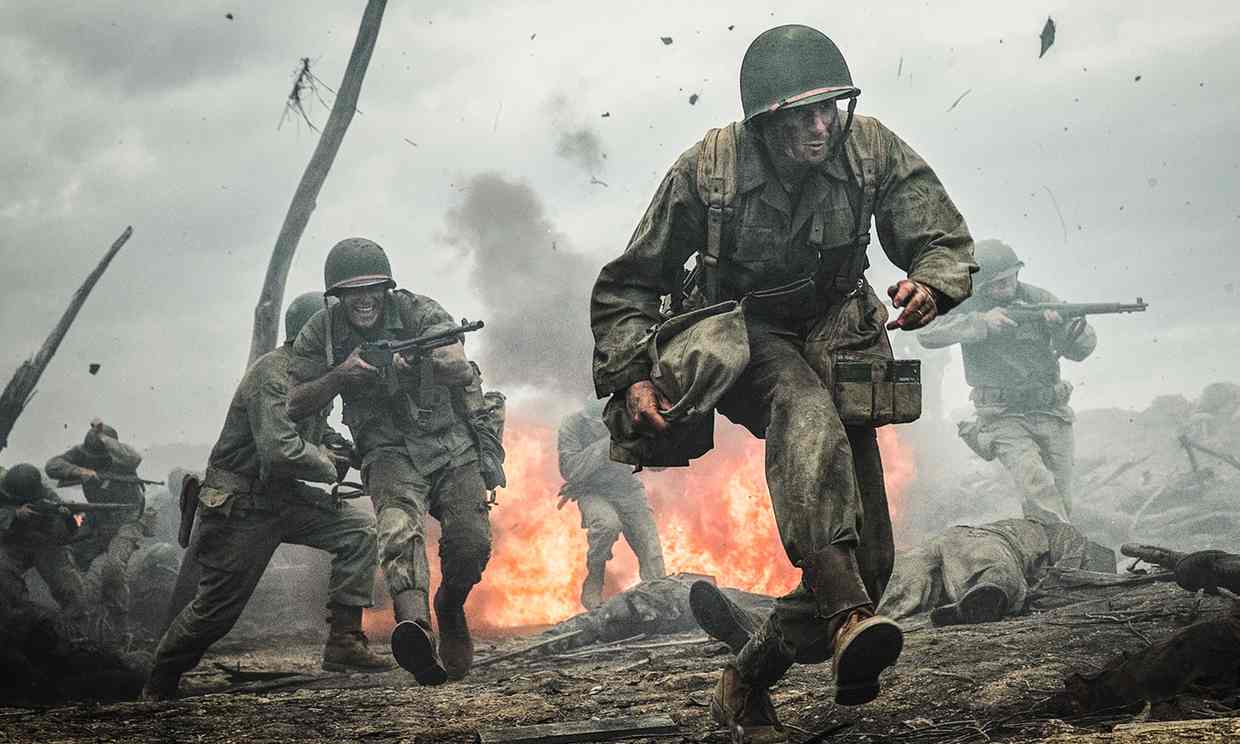Hacksaw Ridge gives us the grittiest, most brutal depiction of war since Saving Private Ryan. The film follows Desmond Doss (Andrew Garfield), a young combat medic who refuses to carry a weapon into the field because of his deeply-held religious convictions. The war scenes are explicit and violent, the camera lingering on (literal) guts and gore. Characters die in droves, and their deaths are treated without spectacle, a choice which works well in the context of the film. The fragility and ephemerality of life is a recurring theme in the film, one which makes Doss’ refusal to carry all the more suspenseful.
‘The fragility and ephemerality of life is a recurring theme in the film, one which makes Doss’ refusal to carry all the more suspenseful’
Garfield’s portrayal of the eccentric, uneducated soldier feels awkward at first; though the character is supposed to be different from the other soldiers, Garfield’s performance comes across as overly-eccentric, distracting from the story. As the film goes on, however, he eases into the role, his portrayal still strange but equally endearing. Vince Vaughn, usually known for his romantic comedies, also gives a surprisingly good performance as Sergeant Howell, an army officer who gives Doss a hard time for his beliefs.
‘Though its portrayal of war is intense and engaging, Hacksaw Ridge suffers from poor plotting and character development’
Though its portrayal of war is intense and engaging, Hacksaw Ridge suffers from poor plotting and character development in its first third. The love story between Doss and Dorothy Schuttle (Teresa Palmer) feels like a half-baked retread of love stories already done better, and Palmer’s character has no defining features other than being a nurse and being in love with Doss. Her character exists solely to add emotional stakes to the story but isn’t developed enough to actually elicit any real emotion from the audience. It’s a very good film, albeit one that suffers from heavy-handed and clunky themes, from its aggressive religious symbolism and perhaps from being overly forgiving of American nationalism, all characteristic of Mel Gibson’s direction.
Mikhail Hanafi
(Image courtesy of Mark Rogers/AP)

